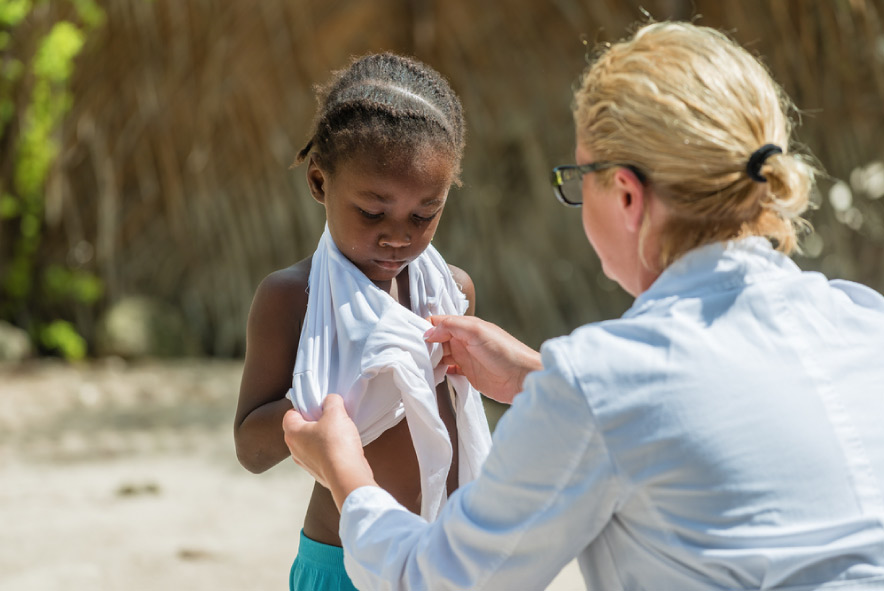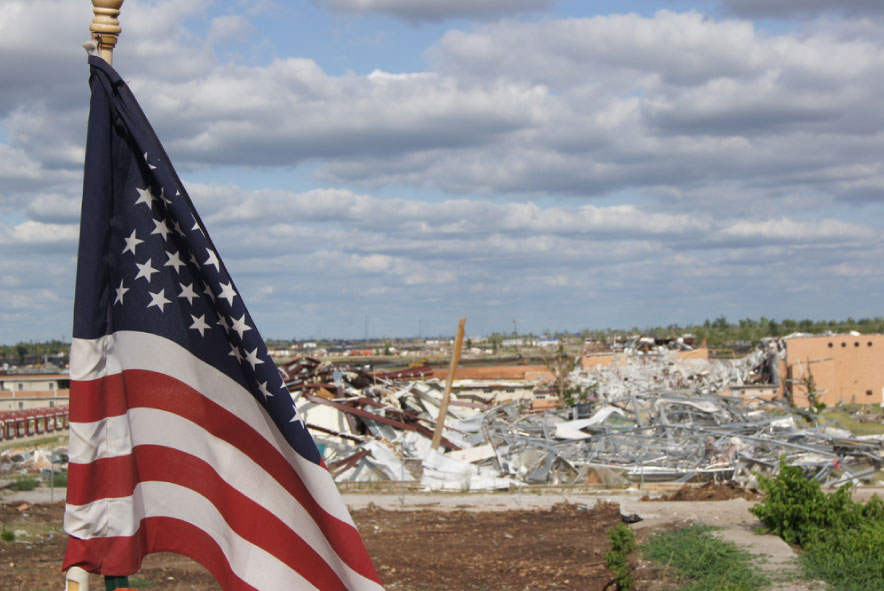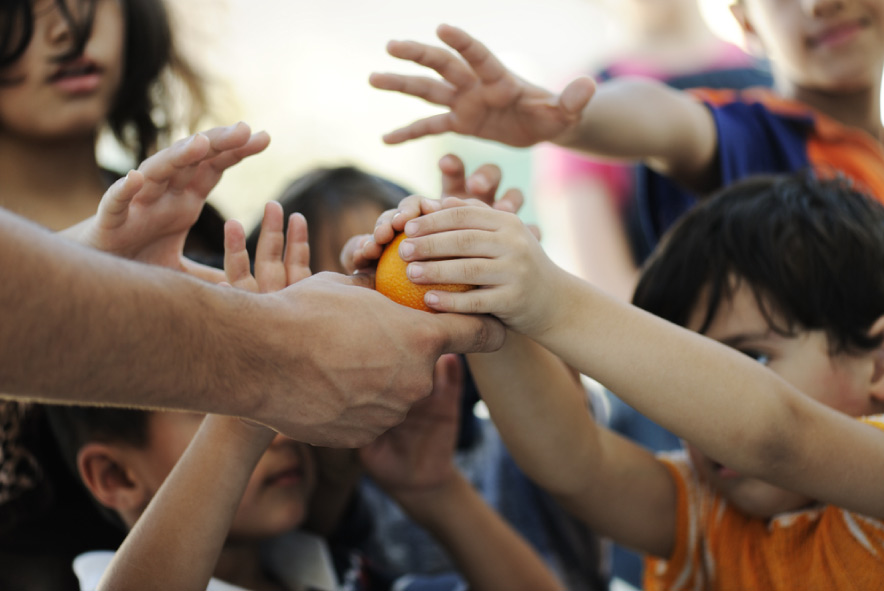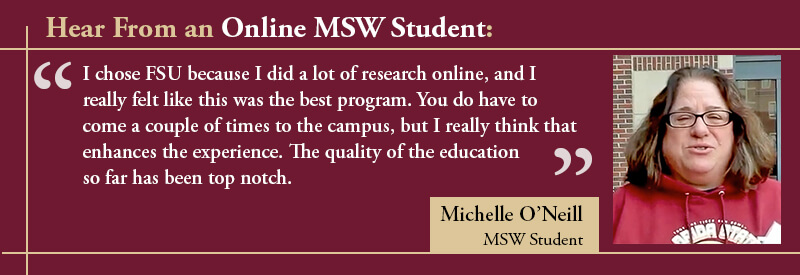How International Social Workers Make an Impact Around the Globe

Social workers are advocates for the disadvantaged, typically within their local community. But their aid can extend beyond borders. Today, there’s a growing interest in humanitarian efforts, including international social work.
Those who want to broaden their impact may benefit from earning a Master's in Social Work (MSW). With an MSW degree, you can gain the knowledge and capacity to make a difference on both a micro and macro level.
In this article, we discuss the ways in which international social workers touch lives around the world.

What Is International Social Work?
Few careers are more essential worldwide than international social work. A significant demand for international social services exists across a range of need areas, especially in countries experiencing ecological, political, or health-related crises.
The United States has committed to help others worldwide. Each year, the U.S. government spends tens of billions of dollars in foreign aid [1]. At the same time, Americans donate $400 billion to charity [2], much of which goes to organizations doing international social work.
Each year, the U.S. government spends tens of billions of dollars in foreign aid on international social work.
Nonprofits and international non-governmental organizations (NGOs) often administer aid programs. Most of these are staffed with international social workers who deliver services where it’s needed most.
International social work covers a wide variety of areas. In 2015, around 736 million,10 percent of the world’s population, lived on $1.90 per day or less [3]. With chronic problems like poverty, war, natural disasters, human trafficking, disease, and forced labor, the need for international social workers continues to be great.
Around 736 million, 10 percent of the world's population in 2015, lived on $1.90 a day or less.
International social workers can be placed anywhere in the world to provide aid. In third-world countries, where basic human needs are often not met, international organizations have deployed to help. International social workers with specialized skills and training are in high demand to work in these areas.
Many governments rely on international aid organizations to provide structure and a workforce to ensure aid programs provide the assistance necessary to tackle critical problems. Providing relief to individuals in need and helping establish systems and infrastructure are ultimate goals of international social work.
If you’re interested in international social work, possible areas of focus worldwide are as follows:
- Children and families
- Women
- Criminal justice
- Gerontology
- Mental health
- Clinical or medical fields
- Education
Those who pursue international social work may find careers with non-profit organizations such as the United Nations, Save The Children, the World Health Organization (WHO), Women for Women International, and the International Justice Mission. These organizations, among many others, work at the frontier of international relief.

Why Is International Social Work Important to the U.S.?
The U.S. is one of a handful of nations, including the UK, Germany, Japan, and France [4], providing a high level of international aid and social workers. This is possible in part because of the economic success the U.S. enjoys, and is also due to the active post-secondary educational environment which exists in our country.
Likewise, the U.S. has a long history of preparing and sending social workers abroad. Since the late 1890s [5], social work has been a profession in the U.S. dedicated to offering assistance where gaps exist between society’s social and economic structures and the people those structures are supposed to provide with essential services.
Abroad, the U.S. and its social workers have been heavily involved in most international social service needs, including:
- Major health-related crises
- Natural disaster recovery
- Environmental recovery efforts
- Post-war humanitarian recovery
It’s important for the U.S. to continue its long history of international social work. Our country's economic comfort and educational strength create a distinct responsibility to continue offering aid to those in need worldwide.
Thankfully, American culture strongly supports not just giving financially toward international aid, but also sending international social workers to provide on-the-ground support.

Examples of International Social Work
International social work requires caring and compassionate individuals who can also handle significant amounts of stress. Social work brings individuals face-to-face with the difficult realities of poverty, abuse, war, disease, economic instability, and other forms of trauma.
Following major disasters— such as the 2010 earthquake that devastated Haiti— foreign aid workers rushed to provide assistance and to help rebuild. In this capacity, international social workers provided a myriad of services including:
- Helping rebuild devastated housing
- Connecting individuals and families to resources
- Replanting farms destroyed in the earthquake
- Providing educational opportunities for local children
- Grief counseling
Such aid effort extended to other natural disasters, including similar efforts following the 2018 tsunami in Indonesia. Many aid organizations also provide direct support for refugees displaced due to political or economic unrest across Europe, Africa, and South America.
International social work organizations can vary in size, scope, and the type of work on which they focus. Many NGOs seek individuals who are highly analytical, responsible, organized, and willing to work with scarce resources. These values are often shared with other NGOs and social service organizations.
Many NGOs seek individuals who are highly analytical, responsible, organized, and willing to work with scare resources.
International social work often requires workers to take on multiple cases at once, and sometimes under harsh physical conditions in areas with limited access to resources.

How to Get Into International Social Work
International social work requires a unique set of skills, an emphasis on dedication, and specialized training. To get started, you’ll likely need:
-
A Master’s degree in Social Work
-
Prior experience or an interest in community service
- Openness and willingness to work with various cultures
- Strong research skills
- An interest in international travel
- A passport or the ability to obtain one
You may also benefit from speaking to a university career advisor who can help guide your choices in the right direction. Before getting started in international social work, it’s important to understand the nature of the job and areas where you may be interested in serving.
While rewarding, social work can also be emotionally draining. Professionals must learn to cope directly with key stressors including secondary trauma and compassion fatigue. Both of these are common when engaging firsthand with human suffering, and can lead to burnout without proper stress management.
Before you get started in international scoial work, it's important to understand the nature of the job and areas where you may be interested in working.
Once you've determined an area of focus, a Master’s in Social Work can broaden your scope of practice. It will also equip you to touch the lives of those in need locally and prepare you for the international social work you may wish to pursue.
Distance learning students are eligible for several international social work opportunities through the FSU College of Social Work International Programs. These include study abroad, alternative spring, and field placement opportunities.
To learn more about international programs, click here. You can also contact Dr. Neil Abell (nabell@fsu.edu) or Emily Joyce (ejoyce2@fsu.edu) to learn more about international program opportunities available to online students.
Make a difference locally and around the world. Learn more about earning your online Master's in Social Work today.
Sources:
